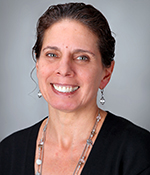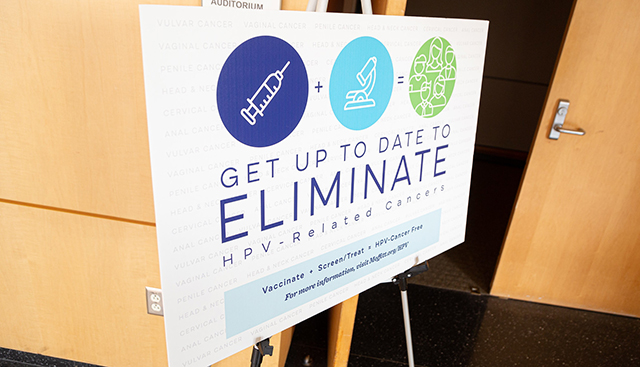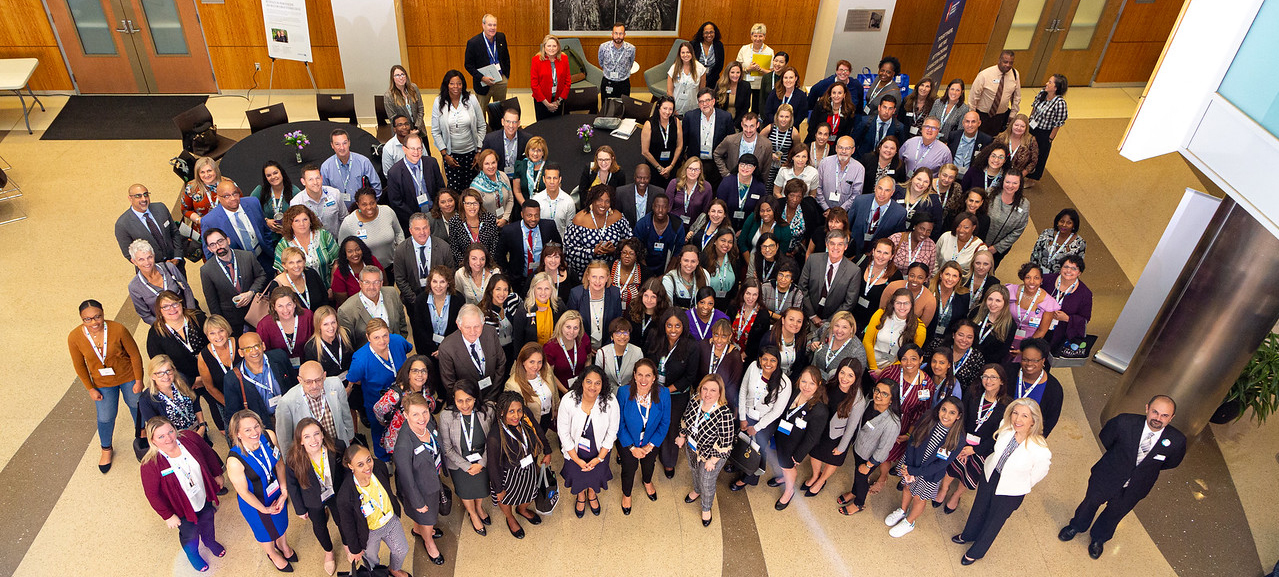Get Up to Date to Eliminate HPV-related Cancers
Nearly 200 people from health care organizations and agencies across Florida came together on International HPV Awareness Day with a common goal: eliminate HPV-related cancers starting with cervical cancer. The goal, part of the state’s newly released cancer plan, is expected to result in an aggressive and expanded effort to increase human papillomavirus (HPV) vaccination, cervical cancer screening and treatment over the next five years. The HPV Leadership Summit, organized by Moffitt Cancer Center and the American Cancer Society, brought together leaders from all facets of health care to develop strategies to achieve the goal of eliminating up to six different cancers in men and women.

Dr. Anna Giuliano, founding director of Moffitt's Center for Immunization and Infection Research in Cancer
“Moffitt has been bringing the health care community together for the last five years to share knowledge and brainstorm ideas on how to increase HPV vaccination rates in our state. Five years ago we were ranked 49th in the nation when it came to HPV vaccination. We’re much higher in the rankings now, but we still have a long way to go before we reach our goal,” said Dr. Anna Giuliano, founding director of Moffitt’s Center for Immunization and Infection Research in Cancer.
The summit began with an overview of Florida’s vaccination and screening rates and how by simply increasing those numbers to 80% vaccinated and 93% of age eligible women screened, the state can become the first in the nation to eliminate cervical cancer.
“We have the tools to make this happen. It is simple — vaccination, screening and treatment,” said Giuliano.
As the group discussed why more adolescents and young adults are not receiving the vaccine, the answer and solution became clear. The consensus: The no. 1 reason males and females are not getting vaccinated is because their physician is not recommending it.
“The message is simple. HPV vaccination is cancer prevention. Moffitt and other health care organizations need to work together to get this message to providers and the community so that more doctors are recommending the vaccine and more parents are asking about it,” said Dr. Susan Vadaparampil, associate center director of Community Outreach, Engagement and Equity at Moffitt.

Dr. Debbie Saslow, director of Cancer Control Intervention for HPV Vaccination and Women’s Cancers for the American Cancer Society, echoed this important message. “There is no need for providers to talk too much when recommending the HPV vaccine. Instead of explaining what HPV is and how it is transmitted, the message should be clear and concise: This is a vaccine that can prevent as many as six different types of cancer in men and women,” said Saslow.
The summit concluded with remarks from HPV-related cancer survivor Jason Mendelsohn. He shared that when he was diagnosed with stage 4 throat cancer in 2014, he made videos to his three children saying goodbye. But thanks to a radical tonsillectomy, lymph node removal and seven weeks of chemotherapy and radiation, he is cancer free and motivated to share his story with anyone who will listen.
“If you love your family, your kids, your grandkids and can prevent them from developing HPV-related cancers, why wouldn’t you do that?” said Mendelsohn.
To learn more about HPV vaccination, visit Moffitt.org/HPV.



